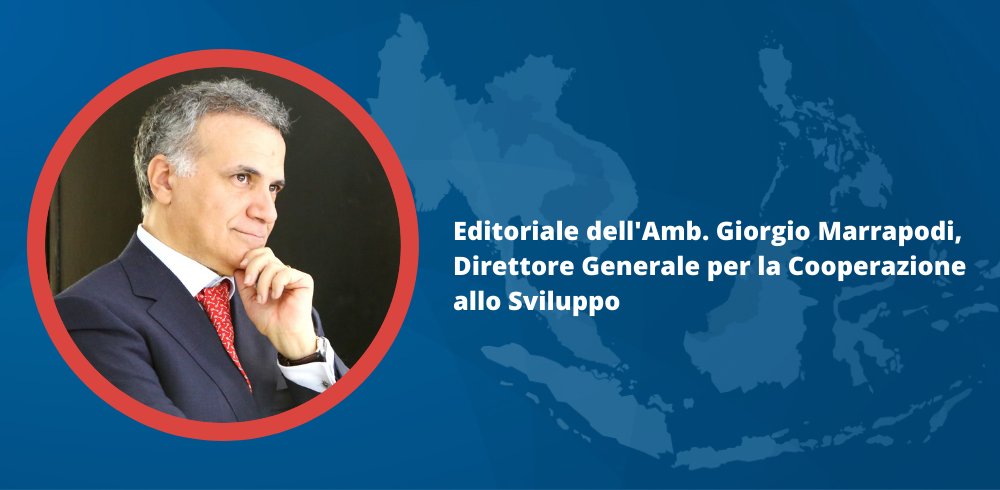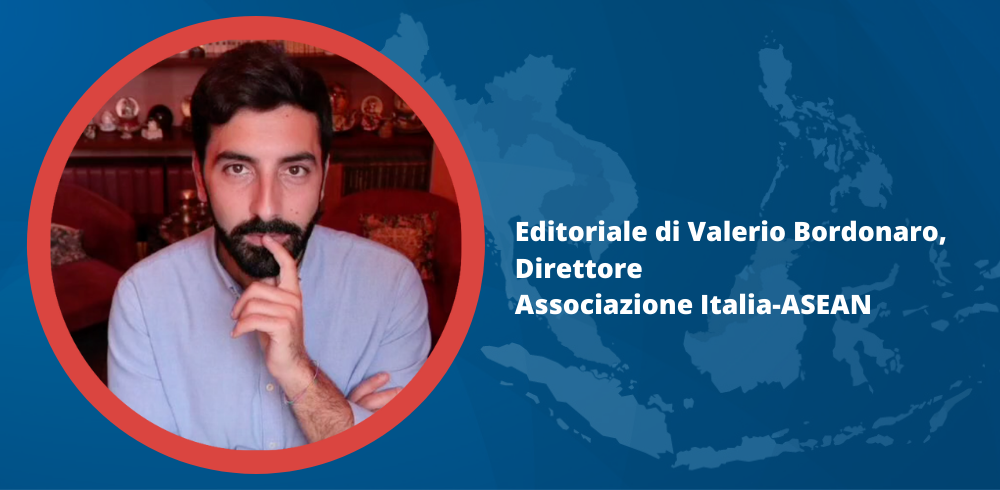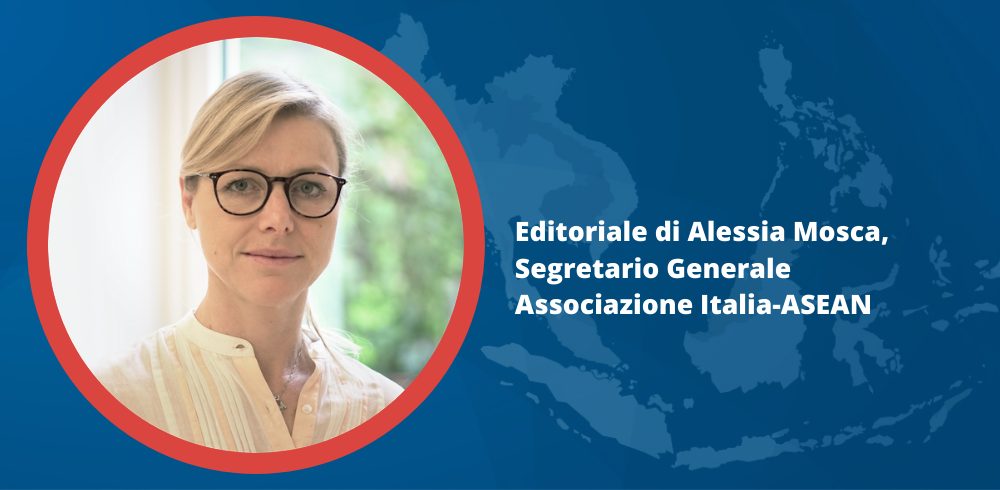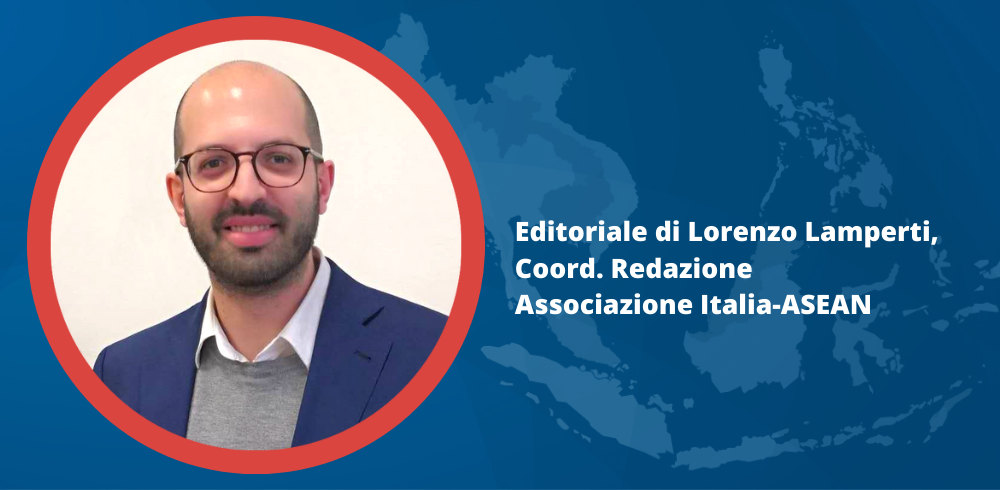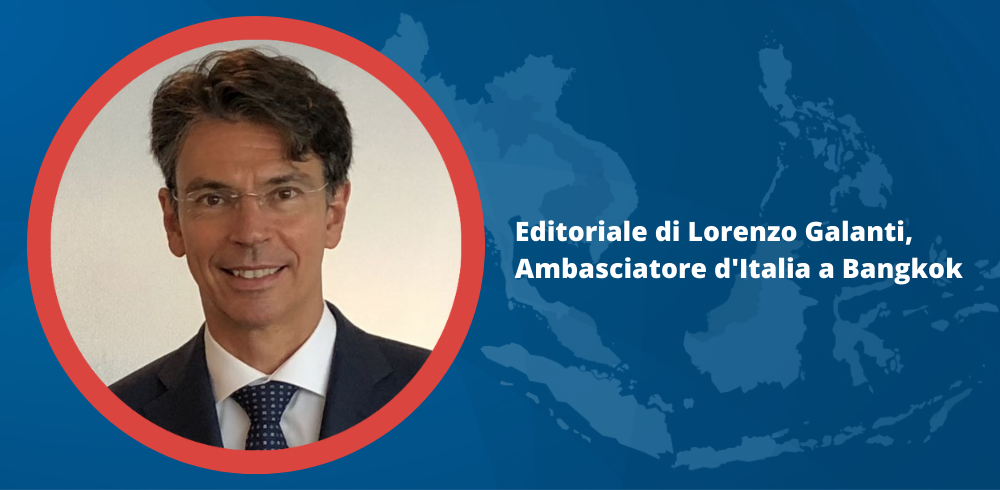Il sostegno sanitario al Sud-Est asiatico può aiutare anche una ripresa economica inclusiva e duratura in un’area di crescente interesse per il nostro Paese
Editoriale a cura dell’Amb. Giorgio Marrapodi, Direttore Generale per la Cooperazione allo Sviluppo
Da alcuni mesi il Sud-Est asiatico è interessato da una nuova ondata pandemica, caratterizzata da un incremento preoccupante dei contagi e dei decessi, specie tra le fasce più vulnerabili della popolazione. L’impegno delle Autorità locali nella lotta alla pandemia si scontra con la limitatezza dei mezzi a disposizione, specie in termini di dosi vaccinali disponibili. L’Italia, Partner di Sviluppo dell’ASEAN dal 2020, si è immediatamente attivata per l’inclusione del Sud-Est asiatico fra le aree beneficiarie in via prioritaria di donazioni di vaccini mediante la Covax Facility. Tale azione si è finora tradotta nella donazione da parte italiana di oltre 2,8 milioni di dosi al Vietnam e di quasi 800.000 dosi all’Indonesia, per un totale di oltre 3,5 milioni di dosi. Altre dosi saranno in arrivo nelle prossime settimane, sulla base delle più recenti allocazioni, e sulla base della segnalazione della regione del Sud-Est Asiatico come un’area prioritaria. Il nostro Paese sta lavorando alla donazione di dosi anche a favore di altri Paesi ASEAN. Le donazioni si inseriscono nel più ampio impegno dell’Italia a destinare entro la fine dell’anno 45 milioni di dosi ai Paesi a medio-basso reddito, annunciato dal Presidente del Consiglio, Mario Draghi, il 22 settembre scorso nel corso del “Global COVID-19 Summit”, a margine della 76esima Assemblea Generale dell’ONU. L’Italia “triplica” in questo modo l’impegno assunto lo scorso 21 maggio in occasione del Global Health Summit di Roma di donare 15 milioni di dosi entro il 2021 e conferma di essere in prima linea, anche in qualità di Presidente di turno del G20, nella lotta alla pandemia e nell’accelerazione della campagna vaccinale nelle aree più colpite, incluso il Sud-Est asiatico. Ciò nella piena consapevolezza che “no one is safe until everyone is safe” e che solamente attraverso una più equa ed ampia distribuzione dei vaccini sarà possibile creare le condizioni necessarie per un ritorno alla normalità e per una ripresa economica inclusiva e duratura, specie in un’area di crescente interesse per il nostro Paese e per le nostre aziende quale l’ASEAN.

